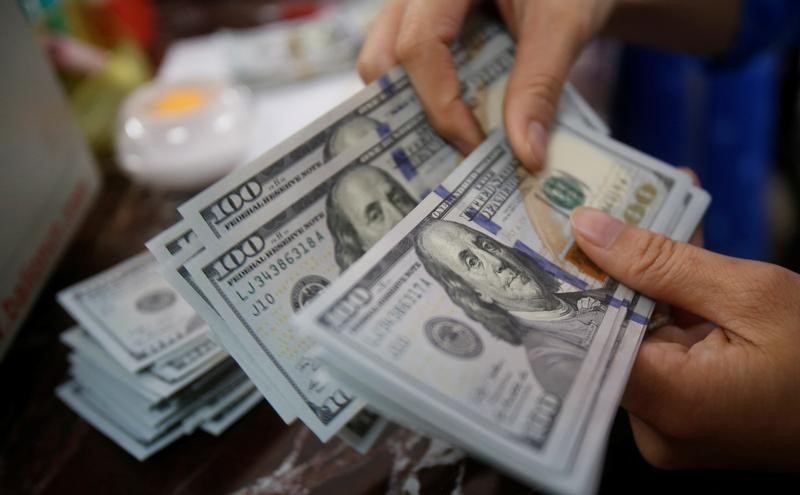By Ross Kerber
BOSTON (Reuters) - The difference in yield between prime and government money market funds has widened by 6 basis points since January, according to data released on Wednesday, in a trend expected to accelerate as investors prepare for new rules being rolled out this autumn.
Executives at big fund sponsors JPMorgan Chase & Co (NYSE:JPM), Goldman Sachs Group Inc (NYSE:GS) and others expect institutional investors to move perhaps $400 billion out of prime funds, or about half their assets, and into government money funds in coming months. Ensuring a smooth shift will amount to the first major test of how well U.S. regulators have strengthened the $2.7 trillion money fund industry, whose ultra-safe reputation was tarnished during the 2008 financial crisis.
Clients like corporate treasurers worry that new rules could lock up some assets during times of stress. As those investors leave prime funds, companies such as banks that sell funds securities will have to offer better terms, said John Tobin, head of portfolio management for the liquidity business of JPMorgan Chase & Co's asset management unit.
"They will be compelled to pay more to get those same trades done," Tobin said in a recent interview. The spread between the yields paid by prime and government money funds could widen to close to 40 basis points or more this summer, he said. That would also provide extra returns for investors willing to sit tight.
"It's a great opportunity," he said.
Among funds for institutional investors, prime funds' weekly average yield stood at 26 basis points, 17 basis points more than government funds, iMoneyNet said on Wednesday. At the start of the year the prime funds' yield was 15 basis points, or 11 basis points more than government funds. Institutional prime funds now hold $788 billion, while institutional government funds have $938 billion, iMoneyNet said.
One of the best-known prime funds "broke the buck" in 2008 when it was unable to maintain its traditional $1-per-share net asset value, while others needed support from their sponsors.
Under rules passed by the U.S. Securities and Exchange Commission in 2014, starting in October institutional prime funds will allow their net asset values to vary from $1, to condition investors to fluctuations. The boards of nongovernment money funds will also gain new powers to limit withdrawals in times of stress.
Safer-seeming government funds do not face the same rules, which has led asset managers to revamp their product lineups and has already reduced assets in prime funds. "Prime funds are no longer the pure-play liquidity option that they once were," said Brandon Swensen, co-head of fixed income at RBC Global Asset Management, which is shutting down its Prime RBC Money Market Fund.
The asset shift is not expected to cause much market disruption, according to analysts and fund executives, thanks to actions by regulators like pushing banks to use longer-term funding sources.
Also, Dave Fishman, head of Goldman Sachs' liquidity solutions business, said there is less risk the new rules will push money into unregulated products because of a new overnight repurchase facility offered by the Federal Reserve where government funds can park cash leaving prime funds.
Deborah Cunningham, senior portfolio manager for Federated Investors, said she plans for scenarios where the yield difference between prime and government money funds widens to as much as 50 basis points, the most since 2009.
Even at that spread, however, many corporate treasurers will move their money, said James Gilligan, assistant treasurer of Great Plains Energy Inc.
"Treasurers are going to sacrifice yield for security," he said.
(This story corrects word in second sentence of sixth paragraph to "government" instead of "prime")
